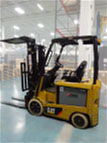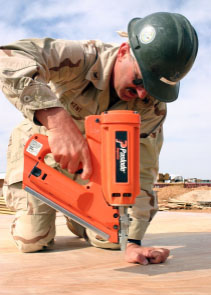Certain processes and types of equipment require certification. Where certification is required, the certification must be by Yaskawa America, Inc. or one of it's authorized certification providers. Certification from previous employment will not be accepted.
The general rule of thumb is, certification is required if the equipment or process: has a motor, exposes a person to hazardous energy, shoots something, or if it puts a person in a hazardous environment.
This policy includes the types of equipment and processes that required associates to be certified.

Education
The process of acquiring knowledge often through classroom or eLearning classes.
Learning to drive usually begins with classroom training where you learn:

Training
After we have acquired the knowledge, we need training to develop skill and competency.
You may have had a parent or a driving school take you out to drive for the first time. You probably didn’t drive 70 miles per hour on the freeway your first time out.
Instead, you put in many more hours with an instructor present constantly teaching you new things and introducing you to new situations.

Certification
Certification is documented evidence of competence.
To continue our driving example, the student goes to the DMV and takes a written test to demonstrate she or he has the knowledge.
Then, the student takes a drivers test to demonstrate competency.
If the tester determines the student is knowledgeable and competent, the student will receive her or his drivers license.
This is certification.

Awareness Training
Associates who are not certified, but who are exposed to the hazards of equipment or processes, still require education and training.
To carry our driving example to one last step, we teach our children to look both ways before crossing the street.
We educate them by explaining what could happen, what direction cars travel, and even how to look for something that could go wrong.
Then we teach them by crossing the street with them many times before we let them do it on their own.

Certification is probably required if:



Certification is Required for the following types of equipment:

Certification is Required for the following types of equipment and processes:

Certification is Required for the following types of equipment and processes:

Certification is Required if the process places you into a hazardous environment:
Breaching this policy may result in an injury. Breaches of this policy may result in disciplinary action being initiated in accordance with Yaskawa America's discipline policy.
All associates shall be provided with training related to this policy.
| Rev # | Description | Release Date | Approved by |
|---|---|---|---|
| 0 | Initial Release | 5/14/2016 | Thurwanger |
| Review Date | Reviewed by | Changes Required (Yes/No) | Revision # if updated |
|---|---|---|---|
| 2/15/2017 | Thurwanger | No | |
| 1/12/2018 | Thurwanger | No | |
| 1/18/2019 | Thurwanger | No | |
| 1/14/2020 | Thurwanger | No | |
| 1/26/2021 | Thurwanger | No | |
| 1/18/2022 | Thurwanger | No | |
| 1/13/2023 | Thurwanger | No | |
| 1/16/2024 | Thurwanger | No | |
| 1/21/2025 | Thurwanger | No | |
| 2/11/2026 | Thurwanger | No | |
Policy Video
